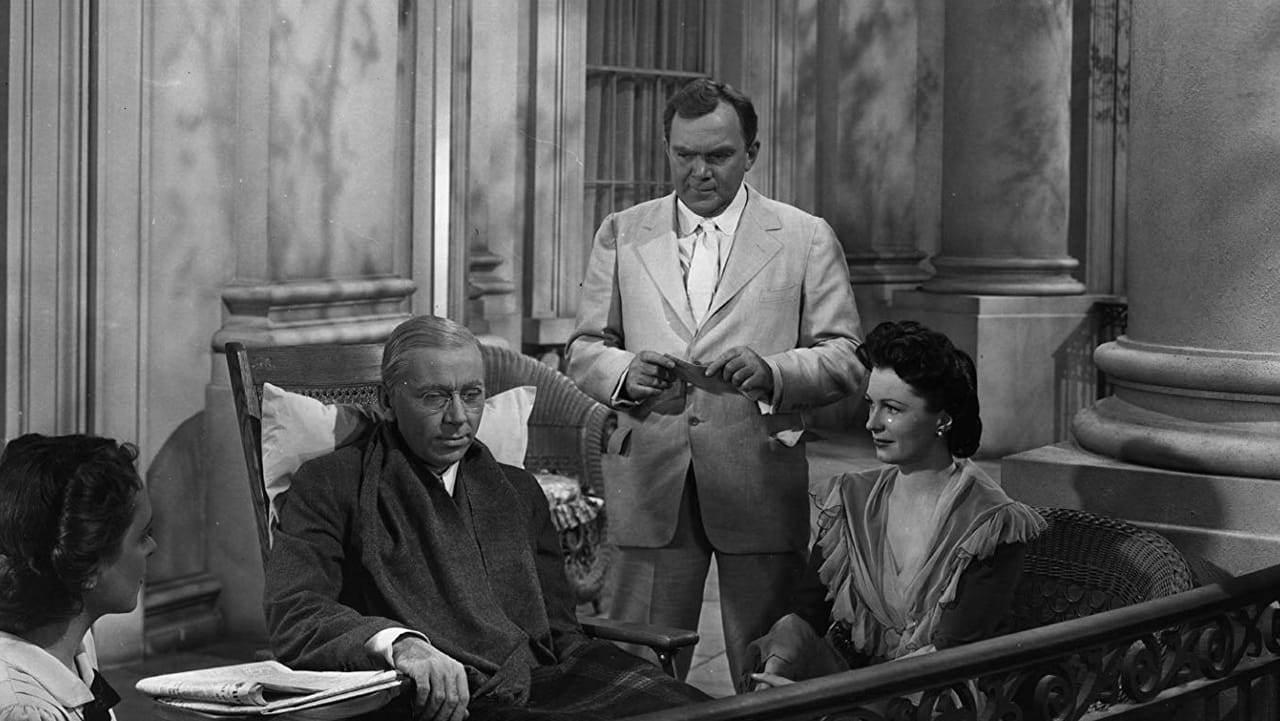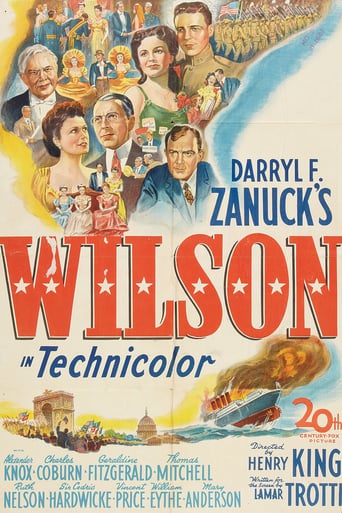

Wilson was undoubtedly a stiff autocrat but was so far ahead of his time by about 30 years with his 14 points for a vision of a League of Nations. Some inaccuracies were inevitable but overall, it deserved the 5 Oscars which were awarded.Aside from the fact that Wilson's own personality may have sunk his 14 point plan, it must have been personally galling that Warren G. Harding's administration was arguably the must corrupt the nation ever saw until Nixon. There is no doubt that he was far, far ahead of his time with the result of WWII which might have been averted with a League of Nations.
... View MoreThis 2.5 hour movie won FIVE Oscars and was nominated for FIVE more!! It is the best major presidential biopic that I have seen in that it covered Wilson's entire presidency--not just a portion of it. This is my 2nd viewing of the movie, and I got MUCH more from it this time than I did from only one viewing. This movie was made during WWII, and I suppose that audiences were more drawn toward experiencing WW II, as in Since You Went Away (1944), The Seventh Cross (1944), or Lifeboat (1944)--or escaping from it, as in Going My Way (1944) or Gaslight (1944) did. My assumption is that movie audiences did not much want to look backwards towards WW I. Still, there is some good history, here, presented in an entertaining and enlightening fashion. I felt that Alexander Knox gave a convincing— perhaps Oscar-worthy--performance as Wilson. The movie generally presents the legislative accomplishments of his first term and his struggle with WWI and trying to get his 14 points and the League of Nations approved during his second term. It also inserted some real black-and-white newsreels from period. Also, I am quite sure that Knox gave a couple of Wilson's speeches as they were originally written. e.g. his speech to Congress asking them to declare war on Germany. I have two main reservations with this movie: 1) It only covered the positive side of Wilson's presidency and did not cover his negatives (but I suppose that is typical of a Hollywood movie). 2) I felt the internal designs of the White House were a bit too ornate. If you haven't seen this movie, I would recommend it.
... View MoreIt's funny how they left out the fact that he segregated the military and segregated all government facilities in Washington DC such as, restrooms, drinking fountains etc. He belonged to the Progressive Party which highly admired the Russian Socialists and wished to implement the same government in the US. He began the Secret Service which was used to spy on Americans which opposed this particular view and had thousands of ordinary Americans imprisoned for opposing the Progressive/Socialist ideology. This was one of the most racist presidents our country has had. Why is this information kept out of history books? He premiered the racist silent film, "Birth of a Nation" in the White House in 1919 which was produced by the KKK to depict blacks as criminals and whites as victims. Why are there grade schools named after him, why is there a school at Harvard named after him? Progressives have always been a political party which has a negative ideology.
... View MoreThis movie was a hit with Hollyweird and the rich liberal movie industry but it fell flat with the public and I can see why. It's like when Reagan soundly defeated the other southern democratic peace liberal Jimmy Carter It showed that the public only likes real democrats not the liberal kind. Because FDR who was a real democrat had already been in for two terms when this movie was made the public had known full well what a genuine democratic president was and what he could do. This stupid movie was a product of rich jealous liberal movie industry moguls who didn't like FDR's socialist changes and thought they could brainwash the public with a piece of Hollywood fluff. It is good for a laugh though with over the top sentimentality and extravagant wardrobe and scenery.
... View More